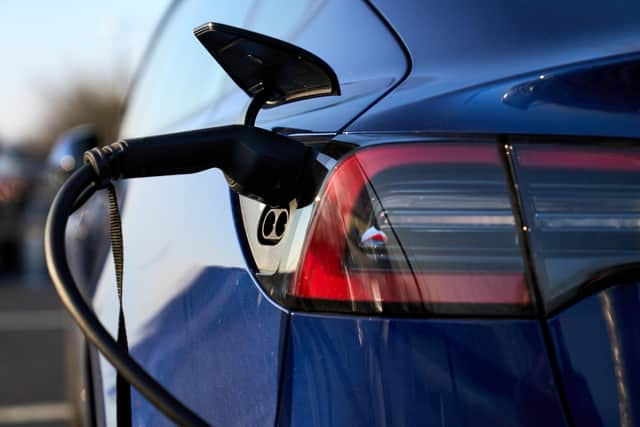Nearly 3,600 low-emission vehicles now registered in Ashfield
This article contains affiliate links. We may earn a small commission on items purchased through this article, but that does not affect our editorial judgement.
and live on Freeview channel 276
The RAC said the high up-front cost of electric vehicles – the most popular low-emission vehicles – was still putting many people off buying them, despite their lower running costs.
New figures from the DVLA show there 3,624 low-emission vehicles were registered in Ashfield as of March 2023 – up from 2,400 the year before, and 512 in 2018.
Advertisement
Hide AdAdvertisement
Hide AdIn total, there were 75,006 vehicles registered, meaning 5 per cent of them were officially classified as low-emission.


Across Nottinghamshire, there 33,828 low-emission vehicles were registered as of March 2023 – up from 22,468 the year before, and 4,468 in 2018.
Designed to emit less than 75 grams of carbon dioxide from the tailpipe for every kilometre travelled, they include battery electric, plug-in hybrid electric and fuel cell electric vehicles.
Across the UK, 114,000 plug-in electric vehicles and 76,000 battery electric vehicles were registered for the first time between January and March, rises of 13 per cent and 19 per cent respectively on the previous year.
Advertisement
Hide AdAdvertisement
Hide AdIt meant by the end of March 2023, the number of electric battery vehicles had increased by 58 per cent in the last year to 770,000, while there were also more than 1.2 million licensed plug-in vehicles, an increase of 45 per cent.
Simon Williams, RAC head of policy, said: “While the rise in demand for electric cars has been nothing short of meteoric, we’re concerned the relatively high up-front cost of many vehicles continues to put many people off choosing them.
“We’d like to see the Government do more to sustain new electric car sales, by reintroducing a form of the previous plug-in car grant aimed at cheaper electric models. A cut to the VAT rate at public chargers from 20 per cent to match the 5 per cent levied on domestic would also make going electric an easier choice.”
A Department for Transport spokesman said the Government and industry had supported supported the installation of more than 45,000 public charging devices and stressed plug-in grants would continue for taxis, motorcycles, vans and trucks for at least another year.
